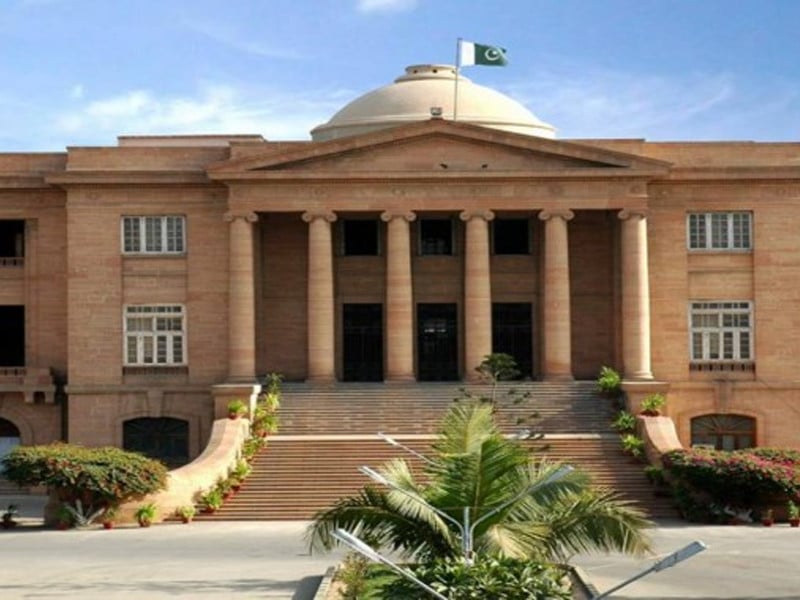
The Pakistan Tehreek-e-Insaf (PTI) has filed a petition in the Sindh High Court, challenging the recently introduced Practice and Procedure Ordinance, which it claims violates a Supreme Court ruling.
The petition argues that the ordinance breaches constitutional principles and calls for its immediate suspension pending a judicial review.
In its petition, PTI stated that the ordinance, which deals with judicial practices, contradicts a ruling by a Supreme Court bench led by Chief Justice Qazi Faez Isa.
According to the petition, the bench had previously ruled that an ordinance could only be issued in cases of emergency. The PTI further argued that the ordinance could not be issued immediately after a parliamentary session, which it claims goes against constitutional guidelines.
The petition also alleges that the government is using the ordinance to involve judges in political matters, calling the move unconstitutional.
PTI has urged the court to annul the ordinance and suspend its implementation until a final decision is made.
After filing the petition, PTI leader Haleem Adil Sheikh spoke to the media, stating, "We are here today to challenge the amendment being brought forward.
The government is attempting to undermine the independence of the judiciary. We filed a similar petition against the Practice and Procedure Act in 2023, and we stood by the judiciary in 2007—this time is no different."
The PTI’s legal challenge comes amid growing concerns about the judiciary’s involvement in political affairs and the government's use of ordinances.
The party has vowed to continue its fight to safeguard the independence of the judiciary.
Previously, the Practice and Procedure Amendment Ordinance, 2024 was challenged in Lahore High Court in a petition requesting the court to declare it unconstitutional and all orders or actions taken in this regard to be set aside.
According to the petition, the Amending Ordinance was passed and given assent without adherence to the required legislative process.
Petitioner Munir Ahmed filed the petition through advocate Azhar Siddique praying the court to declare this Ordinance ultra vires in view of Articles 9, 10, 10-A, 14, 17, 25, 37, 38, 46, 48, 75 & 89 read with Articles 4 & 5 of the Constitution of the Islamic Republic of Pakistan, 1973.
Petitioner’s counsel implored in the petition that all orders or actions taken pursuant this Ordinance are in violation of the fundamental rights provided in the Constitution of the Islamic Republic of Pakistan, 1973.
He further requested the court to direct the respondents to share all the required information(s), details and document(s) under Article 19-A of the Constitution of the Islamic Republic of Pakistan, 1973.
He submitted that these amendments cannot be supported; therefore, the Ordinance should be withdrawn with immediate effect.
Federal Minister for Information, Broadcasting, National Heritage, and Culture, Attaullah Tarar explained the key provisions of the ordinance.
Under the new regulations, the courts will now adhere strictly to a “first come, first served” principle. This means that cases will be heard in the order they are filed, eliminating any possibility of preferential treatment.
"The case that comes first will be taken up first by the court, and the cases coming after will be fixed according to their number," Tarar explained.
A significant change introduced by the ordinance is in the handling of cases under Section 184(3) of the Constitution.
Tarar stated that it is now mandatory to document why a particular case is considered a matter of public importance before it is taken up by the court.
A formal order must clarify whether the case pertains to public interest or involves human rights issues.
The ordinance also grants the right of appeal for any orders passed by the Supreme Court under Section 184(3).
In an effort to make the judicial process more transparent, the ordinance mandates that a complete transcript of the court proceedings, including judges’ remarks and observations, be prepared and made accessible to the public.
Another key feature of the ordinance is the establishment of a committee under the Practice and Procedure Act. The committee will be headed by the Chief Justice of Pakistan, with the puisne judge and a third senior judge serving as members.
1732013245-0/now-you-see-me-(1)1732013245-0-405x300.webp)
1730959638-0/trump-(19)1730959638-0-165x106.webp)






1732011525-0/Express-Tribune-(8)1732011525-0-270x192.webp)
1732004108-0/Express-Tribune-(5)1732004108-0-270x192.webp)
1732000275-0/Untitled-design-(9)1732000275-0-270x192.webp)


1726823503-0/Express-Tribune-Web-(5)1726823503-0-270x192.webp)







COMMENTS
Comments are moderated and generally will be posted if they are on-topic and not abusive.
For more information, please see our Comments FAQ